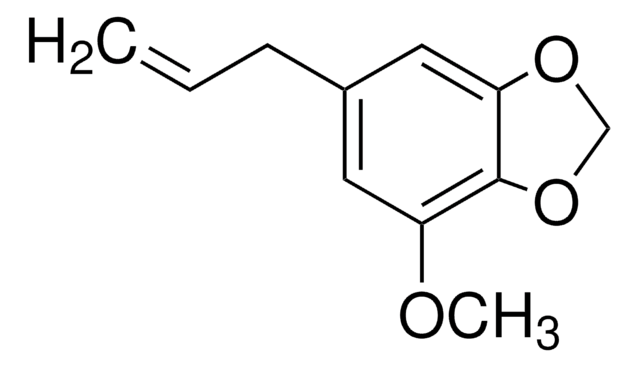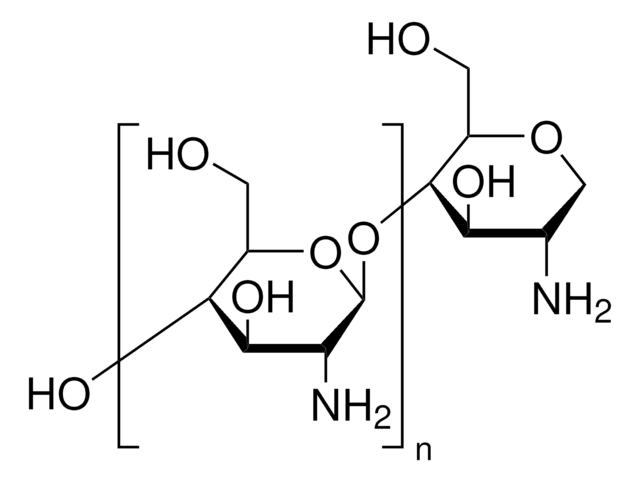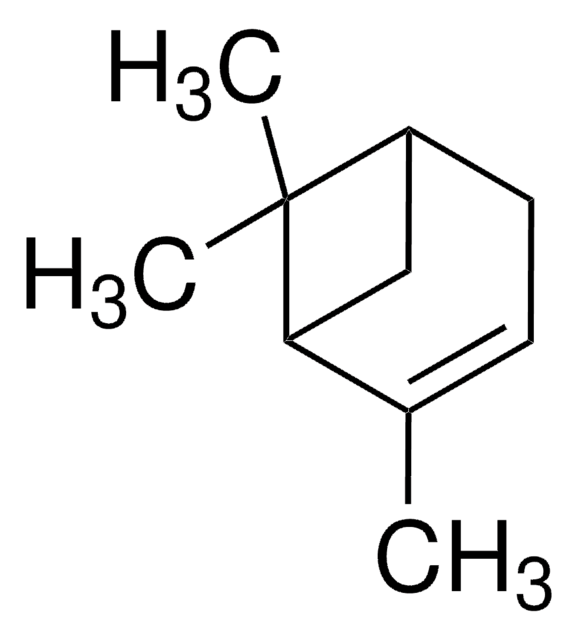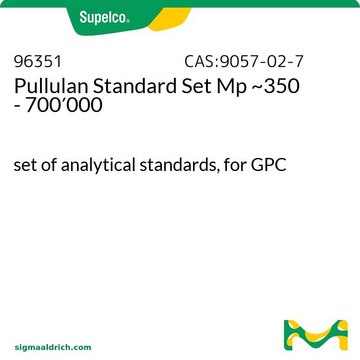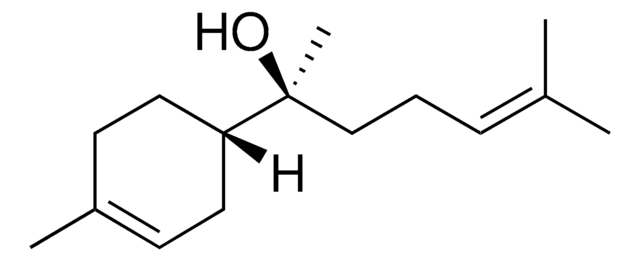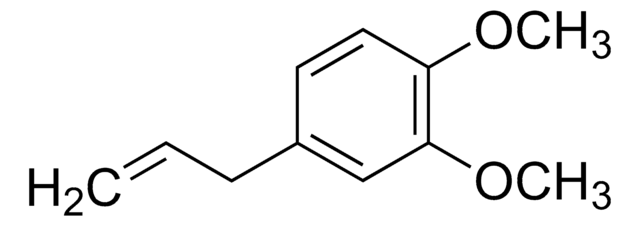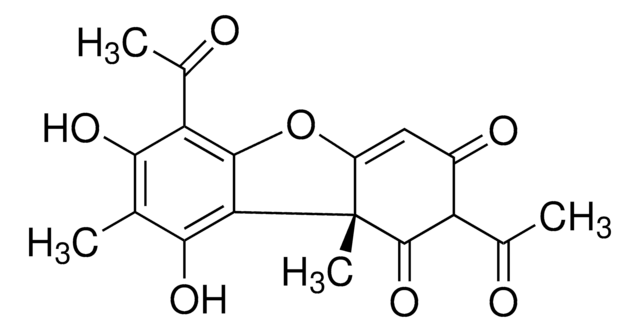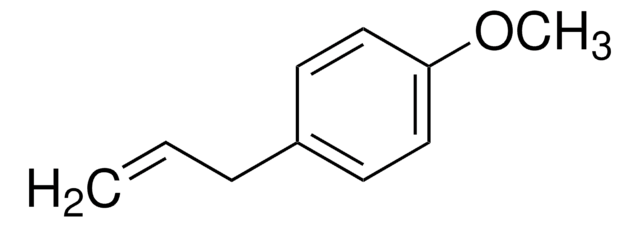09237
Myristicin
analytical standard
Sinónimos:
5-Allyl-2,3-(methylendioxy)anisole, 6-Allyl-4-methoxy-1,3-benzodioxole
About This Item
Productos recomendados
grade
analytical standard
Quality Level
assay
≥97.0% (GC)
shelf life
limited shelf life, expiry date on the label
technique(s)
HPLC: suitable
gas chromatography (GC): suitable
application(s)
food and beverages
format
neat
storage temp.
2-8°C
SMILES string
COc1cc(CC=C)cc2OCOc12
InChI
1S/C11H12O3/c1-3-4-8-5-9(12-2)11-10(6-8)13-7-14-11/h3,5-6H,1,4,7H2,2H3
InChI key
BNWJOHGLIBDBOB-UHFFFAOYSA-N
¿Está buscando productos similares? Visita Guía de comparación de productos
General description
Application
- Leaf extracts of parsley, dill, and celery grown in microwave fields using high-performance thin-layer chromatography (HPTLC).
- Rat urine samples using gas chromatography coupled to mass spectrometry (GC-MS).
- Human serum samples using gas chromatography (GC) with flame ionization detection (FID).
Packaging
Recommended products
signalword
Warning
hcodes
Hazard Classifications
Aquatic Chronic 3 - Repr. 2 - STOT SE 3
target_organs
Central nervous system
Storage Class
10 - Combustible liquids
wgk_germany
WGK 3
flash_point_f
Not applicable
flash_point_c
Not applicable
ppe
Eyeshields, Gloves
Choose from one of the most recent versions:
¿Ya tiene este producto?
Encuentre la documentación para los productos que ha comprado recientemente en la Biblioteca de documentos.
Los clientes también vieron
Nuestro equipo de científicos tiene experiencia en todas las áreas de investigación: Ciencias de la vida, Ciencia de los materiales, Síntesis química, Cromatografía, Analítica y muchas otras.
Póngase en contacto con el Servicio técnico